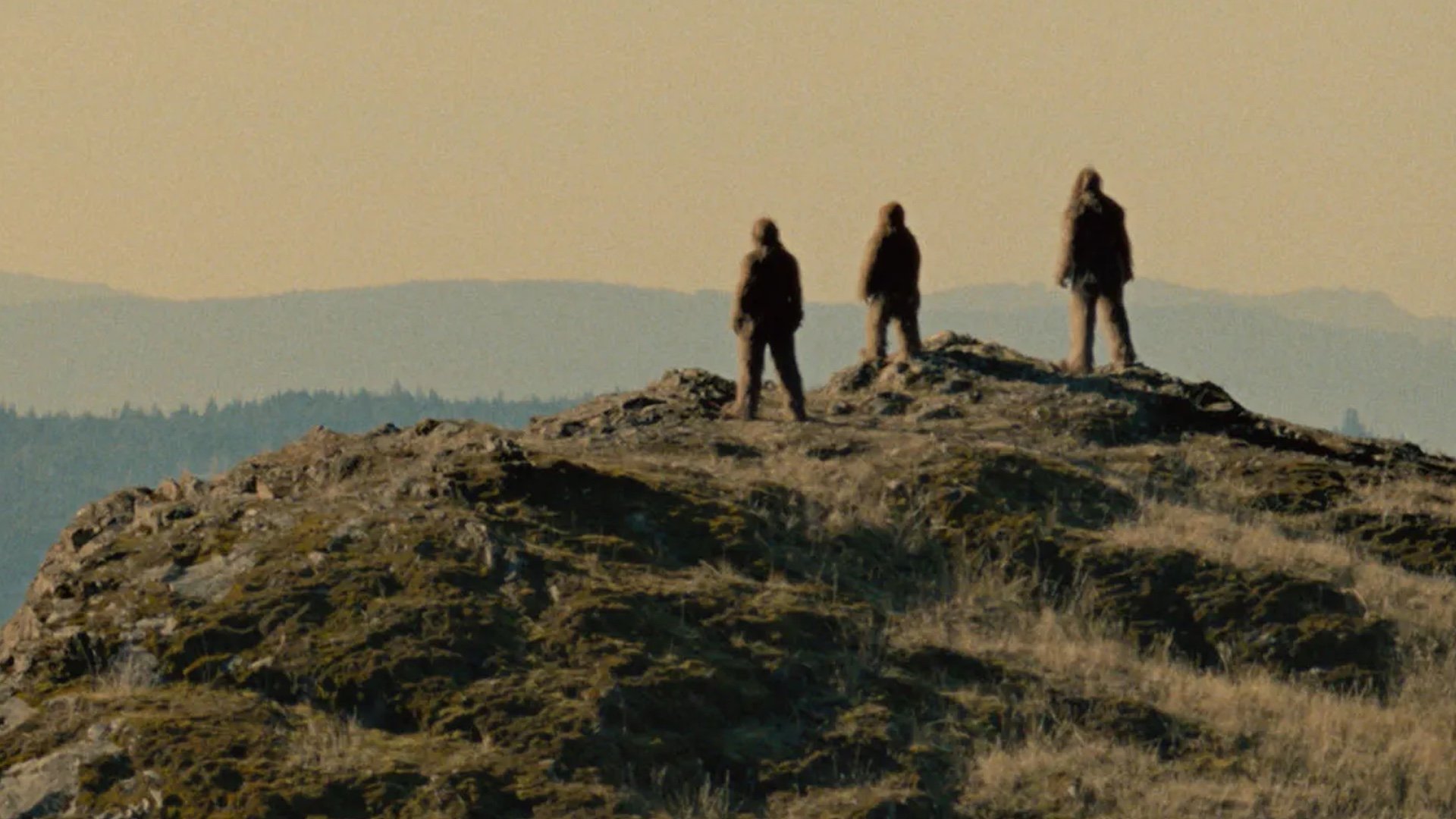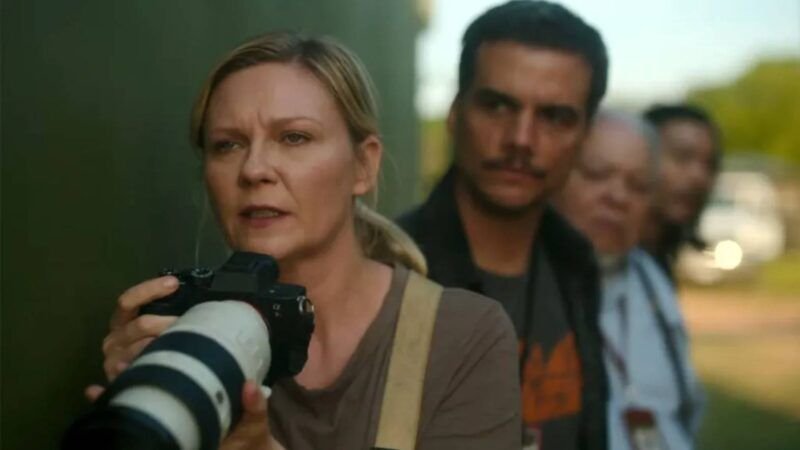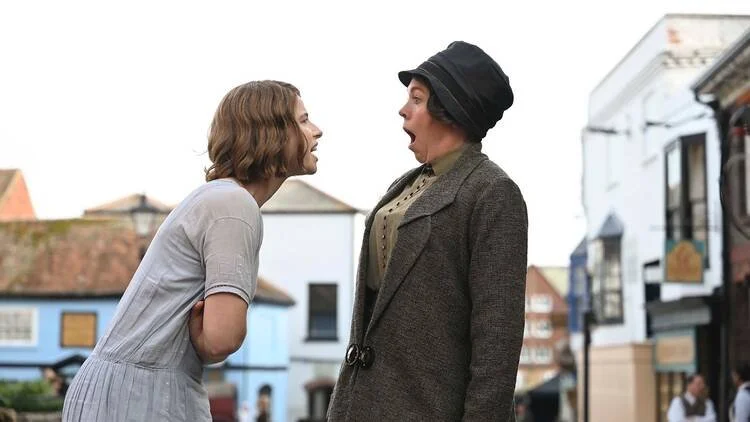CHALLENGERS
Directing: A-
Acting: A
Writing: A-
Cinematography: A-
Editing: A-
Had Challengers been directed by anyone else, I likely would not have been interested. But, offbeat Cicilian director Luca Guadagnino is a game changer. This is the guy who previously brought us the beautiful Call Me By Your Name in 2017; the unusually subtle and lovely queer-ish limited series We Are Who We Are in 2020; and the jarringly tender cannibal love story Bones and All in 2022. He also made the wild mess that was the remake of Suspiria in 2018—the director can be all over the place with his projects, but one thing you can never say about him is that he is unoriginal.
Challengers is easily Guadagnino’s most mainstream project to date, with superstar Zendaya at its center, her injured-tennis-player-turned coach Tashi also being the center of a dysfunctional love triangle with two other rising tennis talents: Patrick (Josh O’Connor) and Art (Mike Faist, who played Riff in Steven Spielberg’s underrated 2021 version of West Side Story). This movie is also only about tennis on the surface, featuring plenty of onscreen tennis matches, but always as a metaphor for the personal tensions between the players. And of course, it wouldn’t be a Guadagnino film without some homoerotic undertones, which here occasionally veer into overtones.
It’s easy to say that these are the kinds of film details that speak to me, but it’s much deeper than that. I don’t think it’s even an accident that O’Connor and Faist are both hot young men, but almost pointedly unconventionally hot—as they compete for a woman played by one of the most universally attractive woman stars in the world. And this is a film that sexualizes all three of them, albeit in one case the camera zooms in on an inexplicably gratuitous shot of Faist’s butt in form fitting pajama bottoms. I found myself wondering if there were any conversations about the intentionality of that on set. I wouldn’t be surprised if there were.
Challengers is presented with a curious narrative structure, where “present day” is a 2019 tennis match that turns out to be a rematch between Patrick and Art after thirteen years, a pivotal match that we return to regularly throughout the film. It jumps back and forth from there to a week ago, or three days ago, or in a great many cases, thirteen years ago—when Patrick and Art first meet Tashi. This is where the homoerotic undertones begin: “I’m not a homewrecker,” she says, about getting in between the two of them, who have been “bunking together” since they were twelve.
I had mixed feelings about this approach to editing at first, and honestly it took several scenes at the beginning of the film before I started to find any of these characters interesting. But this is Guadagnino’s subtle, secret weapon: an expertly applied slow burn, getting you to a point where you don’t even realize yet that you’ve been won over. And in retrospect, Challengers would not have been as effective with a more linear plot line. As it was, every time we jump back to the “present day” match, at which point Tashi is married to one of the eternally competitive (yet unusually intimate) friends as well as acting as his coach, the stakes become clearer. Tennis is just used as a uniquely effective framework for a deeply compelling romantic drama.
Still, in anyone else’s hands, I could easily have lost interest. Guadagnino works with frequent collaborator Sayombhu Mukdeeprom for his cinematography, consistently finding angles on the action that are at once beautiful and offbeat. Several scenes largely hinge on their visual impact, from a sudden wind storm, to a bevy of unconventional shots during tennis matches: off-center closeups of the players’ tense bodies, or POV shots of the players hitting the ball with their racquets, or in one memorable sequence, taking on the point of view of the tennis ball itself. I remain eternally confused by how the hell tennis is scored, but somehow I remained deeply invested in everything happening onscreen.
The performances are excellent all around, but especially stellar on the part of Zendaya. Challengers had already more than won me over by the climactic end to the present-day tennis match at hand, but then the acting, the memorably propulsive score by Trent Reznor and Atticus Ross, the editing, and the cinematography all converge with first-time feature writer Justin Kuritzkes’s script, and everything comes together with such deep satisfaction, it’s like a beautiful puzzle where the picture isn’t clear until the final pieces are set in place. Sticking the landing is a significant challenge even in many otherwise great movies, but here it’s done so well that it elevates an already great film. I left the theater thinking about what a fantastic experience it was.
Match points: I suppose you could call this my favorite tennis movie.
Overall: A-







